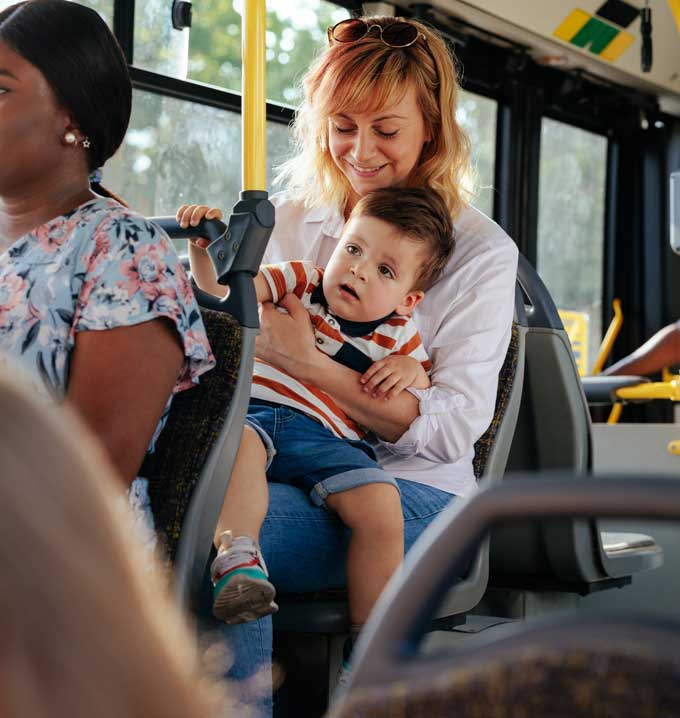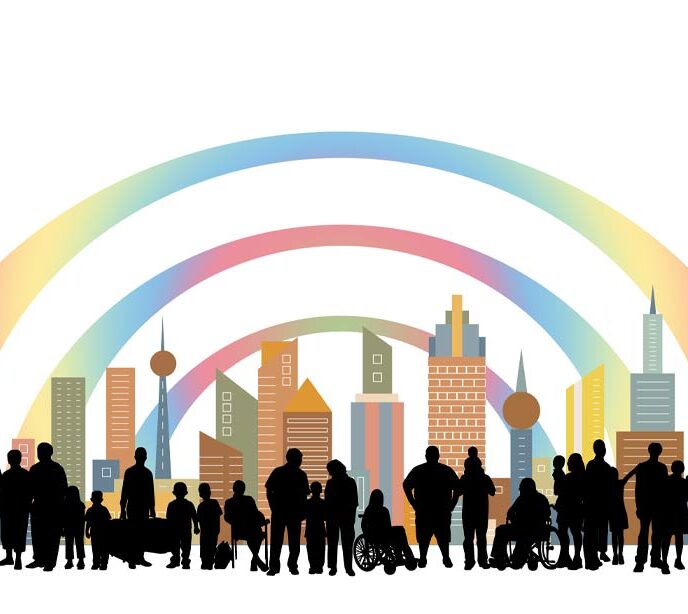Community Resources for Autism
Autism affects the individual, the family, and the community at large. Understanding these impacts can aid in creating an inclusive society for everyone. Discover resources and tips on the role of the community with autistic children.

Tips for Community Interactions With Autistic Children
Children with Autism Spectrum Disorder (ASD) may struggle with building relationships and interacting in social situations. However, this doesn’t mean that they don’t want to engage or connect with others. In reality, it is crucial for children with ASD to have meaningful interactions and connections with their family, peers, and the community.
In this article, we’re discussing some tips for communities of autistic children to better interact with them. Parents already work hard to assist their children’s development, with solutions like Lighthouse Fusion ABA therapy and community support, they can further enhance their efforts and increase quality of life for all those affected.
How does autism affect the community?
Autism affects the individual, the family, and the community at large. Understanding these impacts can aid in creating an inclusive society for everyone. A key concern often revolves around autism and safety in the community. Autistic children may unknowingly place themselves in dangerous situations due to their difficulties with social awareness, without having the tools to effectively communicate their needs or situation and get the help they may require. This can lead to heightened anxiety for parents, caregivers, and community members.
With adequate knowledge and proactive strategies, the community can play a pivotal role in promoting safety and inclusivity for autistic individuals. This includes implementing procedures to locate wandering children quickly and educating community members about autism and potential safety risks. It’s important to remember that every autistic individual is unique, and a safe, supportive community can significantly enhance their quality of life.
How to interact with autistic children
Addressing autism in a community can offer support to both autistic children and their parents while expanding the skills and worldview of community members for a safer, more inclusive environment for all. Community autism resources are a good place to start — online resources, books, and gatherings should all be widely available and encouraged.
Below, we discuss tips for both community members and parents. But first, there are some important things all people should know in order to have healthy, fulfilling interactions with people with ASD.
- It is essential to note that autistic children might have difficulty interpreting non-verbal cues and may not respond to facial expressions like smiles or frowns.
- Their literal perception of language means that you must be precise when speaking to them. For instance, if you’re urging them to hurry by saying, “Step on it,” they might become confused, wondering what they’re supposed to step on. Be precise and keep conversations focused and simple.
- Handling a single thought or idea at a time could be their maximum capacity, especially in unfamiliar or chaotic situations, requiring conversations to be focused and straightforward.
- They may show intense interest in a particular topic, discussing it repetitively.
- They may perceive their surroundings differently, being acutely sensitive to sounds, tastes, touches, smells, and sights that you might not notice, which could cause them discomfort.
Tips for community members
Community members can assist with encouraging inclusivity by implementing some basic courtesy behaviors around autistic kids.
Speak clearly and use simple language
Autistic children often process information differently. When communicating with them, use clear, concise, and straightforward language. Avoid metaphors, idioms, or complex sentences that might be confusing.
Respect their space
Many autistic children have sensory sensitivities and may become overwhelmed in crowded or noisy environments. Like all children, some autistic children may not want to be touched at all, while others may require a lot of care and affection. Respect their personal space and avoid touching them without their consent.
Encourage interaction through shared interests
Identify the child’s interests and use them as a way to engage in interaction. Whether it’s a favorite book, a love for trains, or a passion for a particular TV show, shared interests can provide common ground for communication and connection. Physical play, such as running around and playing outside, can also be a great way to interact, tending to their limited attention span and helping them feel more calm and at ease.
Be patient and give them time to respond
Autistic children often need more time to process information and formulate responses. Therefore, be patient, give them time, and do not rush them to respond. Regular pauses, as well as slowing down your speech to match theirs, are helpful.
Practice active listening
Show that you’re interested and that you value their communication by giving eye contact and responding appropriately. While autistic children can have trouble expressing their feelings, they still need to know that you are interested and that you care. Attentive listening and positive reinforcement can help them feel understood and supported.
Tips for parents
As a parent, you can also introduce various practices to enhance your relationship with your autistic child.
Use visual aids
Visual aids can be highly effective in helping autistic children understand and communicate their thoughts and feelings. These can take the form of pictures, symbols, or even physical objects. Visual schedules and social stories, for instance, can help a child understand what will happen next and thereby reduce their anxiety.
Cultivate constructive expression of anger
Teach your autistic child to express their anger in non-aggressive ways. It’s important they understand that it’s okay to let out feelings of anger and frustration. Though this can be difficult, there are several types of inventions that can help with teaching new and more socially accepted forms of communication.
Exhibit persistence and resilience
Maintain your resolve and resilience. If your child does not react in the way you had hoped, avoid getting your feelings hurt. Remember, autistic children can struggle with expressing and controlling their emotions. Their responses can come off as blunt, but it’s essential not to take it personally.
Learn from your child
Embrace the unique perspective your child brings. Their special needs and abilities might offer a new way to look at the world. As challenging as it might be at times, creating a relaxed, humorous, and appreciative environment in which you celebrate your child will result in a healthy, nourishing, growth-oriented environment for everyone involved.
Practice self-care
Join parent support groups or ask understanding friends and relatives to care for your child while you rest and recharge. School psychologists and counselors also offer resources that can help. When your needs have been taken care of, you are able to be fully present and care for your child in the ways that they need.
Join Lighthouse Autism Center in creating caring autism communities
It’s important to remember that every child is unique, and what works well for one may not work for another. As such, approach each child as an individual, adapt as necessary, and always strive to foster a respectful and understanding environment. For more community resources for autism, check out our autism resources and services.
Together, we can unlock your child’s potential
Related News

06/11/2025
Overcoming Stereotypes
Autism stereotypes are common and can have significant social consequences for autistic children. Misconceptions hinder the acceptance and inclusion of autistic children. Challenging these stereotypes is vital for creating a more understanding and supportive society. Challenging Common Autism Stereotypes When people hear the word “autism,” they often imagine a narrow set of images, like the […]

06/11/2025
What’s Next After ABA Therapy?
There are a number of reasons why an autistic child might stop ABA therapy, and one is that they have reached their goals. In this article, we take a look at what parents can expect going forward. What Are the Next Steps After ABA Therapy? As a parent, you only want what’s best for your […]

06/11/2025
Do Babies with Autism Smile?
We take a look at the importance of early intervention, some of the milestones for parents to look out for, and the more common signs of autism in babies. Do Babies with Autism Smile? Watching your baby grow is an exciting time, certainly one of life’s quiet wonders. From those first sleepy stretches to the […]


